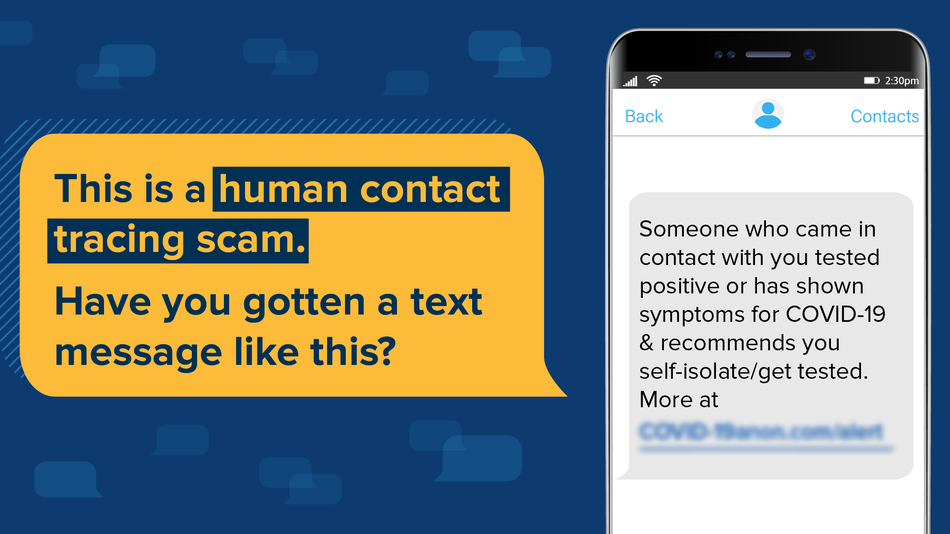
Image: ftc

Follow @https://twitter.com/PCMag
PCMag.com is a leading authority on technology, delivering Labs-based, independent reviews of the latest products and services. Our expert industry analysis and practical solutions help you make better buying decisions and get more from technology.
The coronavirus pandemic is forcing most of us to stay at home and in many case unable to work, but it hasn’t stopped scammers attempting to steal our valuable personal information. They’ve simply adjusted their tactics to use COVID-19 to their advantage.
Apple has just released iOS 13.5, and with it unlocked access to the contact-tracing system it co-developed with Google. However, Colleen Tressler, Consumer Education Specialist at the FTC, is warning that scammers are now using contact tracing as a cover for targeting consumers via their mobile devices.
Getting in touch with people who have been in contact with someone infected with COVID-19 is usually initiated via a text message. But in a post on the FTC website, Tressler warns, “scammers, pretending to be contact tracers and taking advantage of how the process works, are also sending text messages. But theirs are spam text messages that ask you to click a link.”
Sure enough, if you don’t spot the scam and click the link you’re likely taking the first step towards having unwanted software installed on your device. After that, your personal and financial details are vulnerable to being stolen. With that in mind, the FTC is telling everyone to “Don’t take the bait,” remain vigilante, and take action to protect themselves. That means filtering out text messages from unknown senders if you can, enabling two-factor authentication on all online accounts that offer the feature, and always installing the latest available updates for your device(s).
This article originally published at PCMag
here
